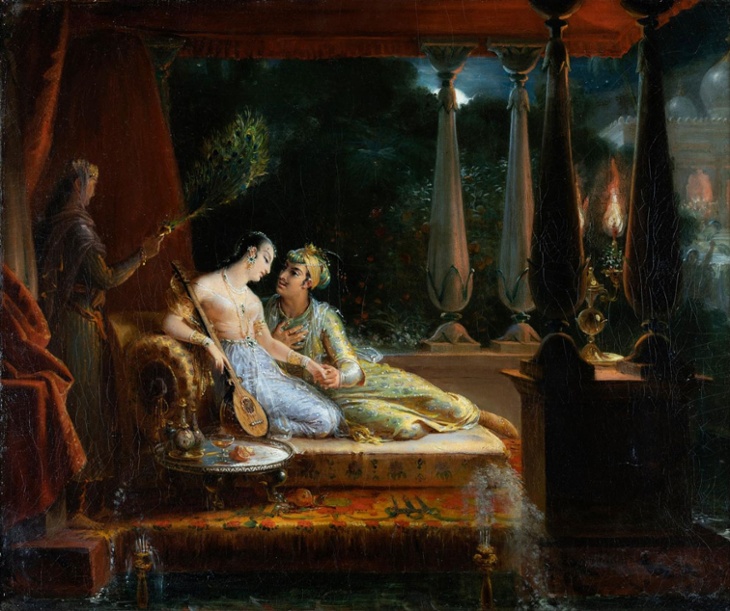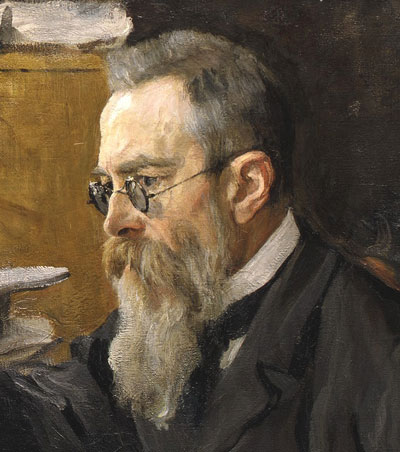
Scheherazade and Shahryar (One Thousand and One Nights). Probably exhibited at the Salon of 1842, by Marie Éléonore Godefroid.
January 12, 2023 | Paul Richardson

Scheherazade and Shahryar (One Thousand and One Nights). Probably exhibited at the Salon of 1842, by Marie Éléonore Godefroid.
The premise of Scheherazade's story is fairly well-known:
The Persian Sultan, Shahryar, discovers that his first wife had been unfaithful, and so he believes all women will betray him. To avoid this, he resolves to marry a new young woman every day, then have her beheaded the following morning, so there is no way she could dishonor him.
But, after three years, the kingdom has run out of women of noble blood (all have either been killed or fled). Then, against her father's wishes, Scheherazade volunteers to marry the Sultan, in order to save all future young women from this fate.
But so that she herself might avoid the fate of her predecessors, she spins stories for the Sultan each night, leaving him in such suspense that he can't execute her the next morning, because then he would not hear the end of the story.
After 1,001 stories (collected in Arabian Nights, a work collected over many centuries by various authors, translators, and scholars across West, Central and South Asia, and North Africa), Scheherazade runs out of material, but by that time the Sultan has fallen in love with his storyteller and spares her life.
Nikolai Rimsky-Korsakov composed Scheherazade (a symphonic suite) 135 years ago, in the summer of 1888. Below are a few tidbits about the piece and about the Scheherazade story that you might not know:
 Rimsky-Korsakov (pictured, right) wrote the work while he was serving in the navy, and he would often work on it during his downtime on board ship. As a result, the work has a nautical theme, with several of the movements inspired by stories of Sinbad the sailor from Arabian Nights.
Rimsky-Korsakov (pictured, right) wrote the work while he was serving in the navy, and he would often work on it during his downtime on board ship. As a result, the work has a nautical theme, with several of the movements inspired by stories of Sinbad the sailor from Arabian Nights.Scheherazade will be performed by the Festival Boca Orchestra, conducted by Constantine Kitsopoulos, on March 11. In addition, the concert will include solos by rising star musicians Kara Ravaschieri and Hina Khuong-Huu, who will be performing the Ibert Flute Concerto and Sibelius Violin Concerto, respectively.
Frankfurt Radio Symphony performing Scheherazade, conducted by Alain Altinoglu.
Buy books by Festival authors, past and present, at our Festival Bookshop on bookshop.org and not only do you support independent booksellers, but help Festival Boca, which gets a modest commission on all referred sales.